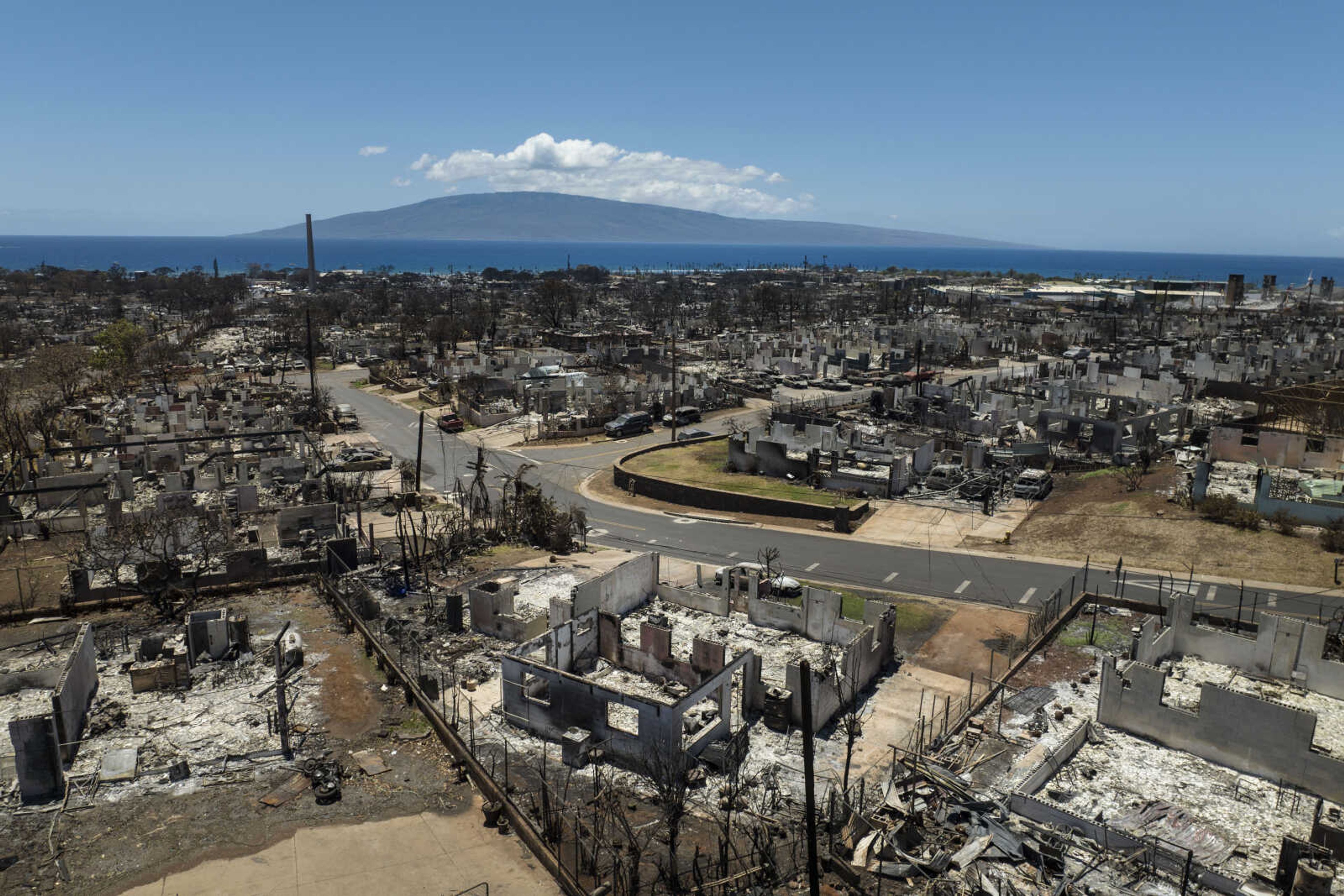Hawaii authorities near end of search for dead
HONOLULU -- Crews in Hawaii have all but finished searching for victims of the deadliest U.S. wildfire in more than a century, authorities said Tuesday, and it is unclear how many people perished. Three weeks after the fire devastated Maui's historic seaside community of Lahaina, the count of the dead stands at 115. But an unknown number of people are still missing...
HONOLULU -- Crews in Hawaii have all but finished searching for victims of the deadliest U.S. wildfire in more than a century, authorities said Tuesday, and it is unclear how many people perished.
Three weeks after the fire devastated Maui's historic seaside community of Lahaina, the count of the dead stands at 115. But an unknown number of people are still missing.
Officials suggested responders likely have already recovered any remains that are recognizable as such, and they are shifting the response to focus on removing hazardous waste and making the area safe for residents to begin returning.
"We have wrapped up almost completely the search and recovery mission and moving into the next phase," Darryl Oliveira, the interim administrator of the Maui Emergency Management Agency, said at a news conference.
The next phase would be hazardous waste removal conducted by the U.S. Environmental Protection Agency, he said.
Maui police Chief John Pelletier said urban search-and-rescue teams have "completed 100% of their area" but some search activity continues in the ocean off Lahaina.
The FBI is searching 200 yards out along a 4-mile stretch of coastline, but no human remains have been found, he said. There are 110 missing person reports filed with Maui police, and more than 50 of those remain open cases that are still actively being worked, he said.
Although the initial land search is complete, authorities may also use details from the missing person reports to go over areas again, he added.
"They say, "My loved one was here' and this may be a data point and we can continue," Pelletier said. "In case there was a chance that something needs to be further looked at, we've got archaeologists and we're gonna make sure that we can do that so, again, we do this the right way."
He asked for "trust and patience" as officials continue to identify remains and go through lists of the missing.
So far, authorities have identified and notified the loved ones of 45 of those killed. They have collected DNA from 120 people to identify the dead and continue to see more samples.
EPA teams will search for and remove by hand hazardous materials such as paints, pesticides and batteries. Lahaina had a large number of lithium ion solar-powered energy storage batteries, which the agency will treat as though they are unexploded ordnance, said Steve Calanog, the EPA's incident commander.
Teams will remove large pieces of asbestos material, but any asbestos in ash will be addressed in the next cleanup phase, he said.
The EPA will mist an adhesive called Soiltac on the ash to prevent it from migrating into the ocean, Calanog said. The substance is "non-toxic, biodegradable and marine safe" and will degrade in two to three months, he said.
The EPA has integrated about 25 cultural observers into its teams so the agency "proceeds with caution, reverence and respect" in the town that was the capital of the former Hawaiian kingdom in the 1800s and home to Hawaiian chiefs for centuries.
"We all know of the rich, long, historic and cultural significance of Lahaina," Calanog said.
The EPA said in a news release it will take up to several months to remove household hazardous material, though the work could be finished sooner.
Maui County didn't sound its emergency sirens to warn residents of the fire when it spread Aug. 8.
Darryl Oliveira, who took over as interim administrator of the Maui Emergency Management Agency on Monday, said sirens had not been used for wildfires in Hawaii before. But he said Maui, the state, and other Hawaii counties were working on new protocols to do so.
"We see tremendous value in incorporating more tools into our arsenal to keep the public aware and get them early warning," he said, adding that the current hurricane season is overlapping with extremely dry conditions on Maui and statewide.
In an early example of this, officials on Saturday sounded emergency sirens to warn residents of a brush fire near Kaanapali resort hotels in Lahaina. Firefighters quickly brought the fire under control.
Oliveira guided the Big Island through hurricanes and volcanic eruptions as the head of Hawaii County civil defense for many years.
He said one challenge was educating the public, including tourists, on what to do if they hear a siren sound to warn of a wildfire.
Connect with the Southeast Missourian Newsroom:
For corrections to this story or other insights for the editor, click here. To submit a letter to the editor, click here. To learn about the Southeast Missourian’s AI Policy, click here.









